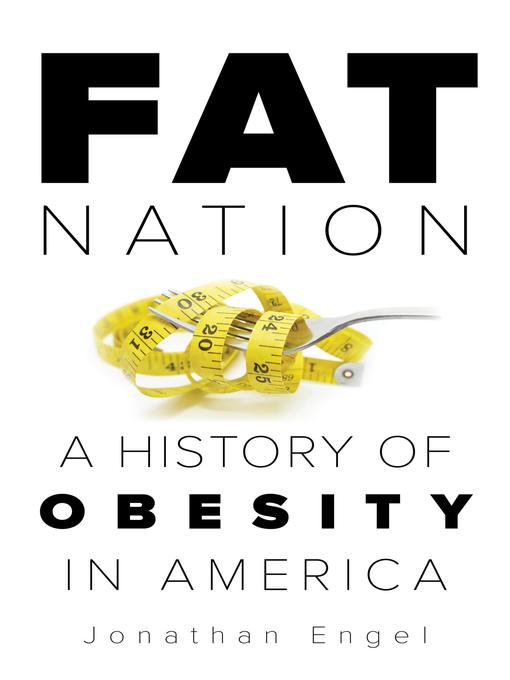
Fat Nation
A History of Obesity in America
کتاب های مرتبط
- اطلاعات
- نقد و بررسی
- دیدگاه کاربران
نقد و بررسی

November 15, 2018
This ambitious effort from U.S health and social welfare policy scholar and CUNY professor Engel (Unaffordable: American Healthcare from Johnson to Trump) details the cultural history of U.S. obesity. The author argues that critical changes to the workforce and the decentralization of communities, paired with the introduction of technology, most notably automation, have drastically contributed to a rise in obesity in post-World World II America. Coverage on health disparities is sufficient, providing adequate correlations of the income gap in obesity. While engaging topically, the arguments are not well supported by current scientific literature, which results in a mostly sociocultural survey of obesity. The references rely heavily on consumer health books and popular news magazines (Newsweek, Time, New York Times Magazine) while peer-reviewed content is cited from a limited number of core journals (Journal of the American Medical Association, American Journal of Public Health, New England Journal of Medicine, and Science). Because of this, the generalized surface-level research lends itself to a more leisurely read than a rigorous scholarly examination of the history of obesity. VERDICT Recommended for casual health and wellness readers.--Carolann Curry, Mercer Univ. Lib., Macon, GA
Copyright 2018 Library Journal, LLC Used with permission.

November 1, 2018
The average American adult doesn't walk much (not even one-third of a mile per day) yet finds time to watch lots of TV (about 4 hours daily) and consume heaps of sugar (almost 3 pounds weekly). It's no wonder that two-thirds of U.S. adults are overweight or obese. But obesity is complicated. Overeating and sedentary lifestyles are only part of the picture. Calories are now pretty cheap and readily available in America. The design of our communities often discourages walking; transportation is mostly mechanized, and many jobs are less physically exerting than in the past. Sugar and high fructose corn syrup, ubiquitous in prepared food, are implicated in the rising rate of obesity. Engel even suggests that human beings have "evolved to be lazy." Different types of diets, weight-loss medications, and bariatric surgery are briefly reviewed. The addictive makeup of manufactured food, the peril of snacking, and the elimination of home economics curricula are discussed. The message is obvious but still urgent: If our food and surroundings don't change, our body fat and health risks will surely swell.(Reprinted with permission of Booklist, copyright 2018, American Library Association.)

























دیدگاه کاربران